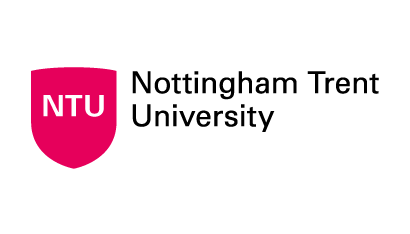Future Careers: Top Jobs, Departments and Skills in 2025

From the AI boom to the 2024 budget, 2025 employees will need to be more strategic than ever and stay ahead of their respective industries. According to a report by the Telegraph, job vacancy in 2024 has dropped to pre-pandemic levels, specifically at 13.5%, the lowest since March to May 2021.
As the 2024 budget means higher operating costs for businesses, more and more employers are cutting hiring, but where will this keep employees in 2025? Read on to learn about the skills, departments and jobs you should focus on taking your career to your strengths.
Top departments in 2025
Consider changing industries? These are the fastest growing industries in 2025.
technology
According to the World Economic Forum (WEF) Job In the future of 2025, according to the needs of Cybersecurity Professionals and General Digital Literacy, there is an increasing demand for Cybersecurity Professionals and General Digital Literacy, and there is an increasing demand for Cybersecurity Professionals and General Digital Literacy, and technology continues to become one of the top areas of 2025. An estimated 60% of employers expect increased digital access to change their business between 2030 and 2030. From AI, robotics and automation to information storage and distribution, these trends are expected to have an impact on the industry, and the space for tech professionals will continue to grow in the coming years.
-

 University of Leeds
University of LeedsHow to enter AI
IT and Computer Science -

 Nottingham Trent University
Nottingham Trent UniversityHow to build resilience in leadership
Business and management, psychology and mental health
Health care
It’s no surprise that healthcare is one of the top departments in 2025. As the population ages, so does the need for qualified healthcare professionals. Care workers (home health assistants) are one of the fastest growing roles, with nursing economics such as nursing professionals, consulting professionals and social workers expected to grow significantly over the next five years, according to LinkedIn data.
put up
The construction industry will see a lot of job growth as the government promises to build 1.5 million homes by 2029. Hybrid work, more funding for affordable housing programs in 2025/26, and growth in retail will contribute to more construction and civil engineering efforts in the coming years.
educate
The e-learning market is expected to grow significantly, from $426.33 billion in 2024 to $1,000.42 billion in 2032, and the global education market is reported to reach $10 trillion by 2030. By 2030, growing staff and working age in the future education sector, this higher educator is growing in secondary and higher education. wef.
The highest job in 2025
Are you ready for a new career? Check out these top jobs.
AI and machine learning engineers
According to LinkedIn’s rise in 2025, the role of AI engineer ranks number one in the fastest growing role in the UK. As AI is growing, more and more employers are looking for experts who can develop AI models and algorithms for predictive modeling and decision-making.
-

 Open University
Open UniversityIntroduction to network security
IT and Computer Science -

 University of Reading
University of ReadingSupport successful middle school learning
teaching
Control System Engineer
According to LinkedIn and Wef, technological change continues to drive the need for technical roles, with control systems engineers being the most important engineers of 2025. The role believes that professional engineer automation systems are critical to manufacturing or process operations and are expected to grow over the next five years.
software developer
It’s no surprise that software developers are one of the most important jobs in 2025, as the industry has been growing steadily over the past decade. Despite advances in AI, experts in designing, creating and maintaining software are still in great need.
Environmental protection officer
As the green skills gap continues to grow, demand for “green jobs” has increased in 2025. It is expected that as more employers focus more on climate positivity, such as environmental officials, will lead allegations of monitoring regulations and determining environmental compliance.
Renewable Energy Engineer
With the government’s goal of achieving its net zero target by 2050 and its recent investment in renewable energy companies, there has never been a better time to study renewable energy engineering. As experts in researching and developing new technologies to reduce environmental impacts, they will not only reach zero cleanliness, but also make cleaner energy the norm.
Construction and civil engineering technicians
Frontline work has also increased in 2025, with technicians such as construction and civil engineering being on the rise. These professional roles will become even more important in the coming years to provide technical support for construction projects and construction engineering.
The highest skills of 2025
With the ever-changing demands of skills, retraining and improving skills for today’s workforce has never been more important. More and more businesses and organizations are seeking to fill their skills gaps, and employees will put themselves at an advantage by developing these required skills.
Technical skills
There is no doubt that technical skills, namely AI, data and cybersecurity skills, are the most popular and fastest growing skills of 2025. AI expertise is an excellent skill with about two-thirds of employers planning to hire people with specific AI skills. These skills will become increasingly important in the workplace as more businesses seek to leverage AI tools, work management platforms and improve security use.
Green Skills
Green skills are also at the forefront of today’s highest skills. In Future Work Future Reports, nearly half of employers expect investments to reduce carbon emissions to be a key business goal. Between 2022 and 2023, the number of jobs that already require at least one green skill has increased by 22%, and this number is only expected to continue to grow.
Analytical thinking
Analytical thinking is one of the demand tips for 2025, and it is obvious that the reason is seen. In a data-driven world, being able to adopt a methodical approach to problem solving in the workplace will not only help when dealing with complex information, but will also prove invaluable when it comes to making difficult decisions.
Creative thinking
Similarly, being able to think creatively is essential for businesses and employees who want to stand out. Whether dealing with limited resources, crowded markets or disagreeing with senior leadership, being able to consider new and innovative solutions has the potential to change your career.
Resilience, flexibility and agility
Complex challenges, transfer methods of working, new technologies and skill requirements all require: resilience, flexibility and agility. Being able to change gears quickly, solve difficult situations and adapt to changes will enable employees to succeed in a fast-paced work environment because they understand better than anyone else, and the only constant is real change.
-

 NHS England
NHS EnglandAdult protection: Level 3 training
Healthcare and Medicine -

 University of Leeds
University of LeedsBusiness Sustainability: Building a Greener Future
Business and management, nature and environment
Critical thinking and problem solving
Problem-solving and critical thinking skills are key skills for businesses in 2025. From analyzing, evaluating and evaluating information to coming up with sound solutions and making informed decisions, key approaches to problem solving will help determine the best course of action. In addition, there is an added benefit that these skills (such as all other soft skills mentioned) are protective and therefore preventable.
Digital Literacy
In today’s data-driven society, understanding of digital media will go a long way toward it. Digital literacy is a core skill that can be used not only on LinkedIn and Instagram. From productivity tools like concept and project management platforms such as Asana and Monday to messaging platforms like Slack, the number of digital tools used everyday in the workplace has never been higher (that’s before we arrived at Genai tools). It is crucial to be able to continuously develop the skills required to implement these tools into the work week.
lead
Communication, delegation, decision-making, team building, stakeholder management and conflict resolution are just some of the leadership skills required for job growth. Leadership has never been more important than just senior members of the team. Everyone can benefit as much as a leader. Being able to lead projects, think strategically and build rapport with different teams is critical not only at work but also in personal growth.
Take your career further with FutureLearn
What does the demand job and skills mean for your career in 2025? Enhance your learning and development with thousands of experts-led short courses, micro-records and degrees. From machine learning to leadership training, you need to learn what you need, no matter your career path or goal.
- Practical Machine Learning for AI: Basic Skills and Experiments at Cardiff University
- Machine Learning Experiment Design at the University of Nottingham
- Advanced and AI on CloudSwyft Apply on Microsoft Azure
- Designing people-oriented AI products and services designed by Hanyang University
- National University of Health (NTHU) AI Ethics, Laws and Policy
- MSC Artificial Intelligence at Huddersfield University
- Renewable Energy Microgrid: Deakin University integrates green hydrogen
- Renewable Energy: University of Leeds achieves sustainability through bioenergy
- Sustainability of Systems Thinking: Complex system analysis, in addition to comprehensive sustainability
- Brief introduction to fintech and financial innovation at Nottingham Business School
- Decentralized Finance: The Future of Blockchain, Ethereum and Banking at RMIT University
- Professional resilience: Build skills to thrive at Deakin University’s job
- Well-being and resilience at work at the University of Leeds and the Institute of Coding
- Leadership Style: How to Find Your Style and Adapt to Others Through United University
- Attracting creativity to solve problems at the University of Leeds and the Institute of Coding
- Open University’s Cybersecurity Action (Cisco)
- MSC Cybersecurity at the University of Roehampton, London
- Care for the Elderly: Deakin University’s Partner Model
- Become a teacher at an open university



